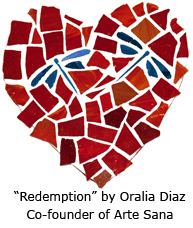 Survivors of domestic violence in communities of color as well as other marginalized communities historically have faced numerous barriers when seeking services and support. This section explores some of these barriers, examines the cultural context of domestic violence in specific marginalized communities, and makes recommendations for how to build cultural competency.
Survivors of domestic violence in communities of color as well as other marginalized communities historically have faced numerous barriers when seeking services and support. This section explores some of these barriers, examines the cultural context of domestic violence in specific marginalized communities, and makes recommendations for how to build cultural competency.
Specific communities discussed in this section include African American women, Latinas, refugee and immigrants, individuals who identify as lesbian, gay, bisexual, or transgender (LGBT), religious and faith-based communities, people with disabilities and people who are D/deaf. Individuals in many of these communities may experience the effects of historical trauma—that is, they may be affected by traumatic events (such as intense discrimination, colonization, and slavery) that happened to the group with which they identify, even if they did not directly experience the event themselves. Historical trauma, a concept that is relevant to many communities, is explored in this section.
Harvard Program in Refugee Trauma
The Harvard Program in Refugee Trauma is located at the Harvard School of Public Health. It is a multi-disciplinary program that has been working in the field of health and mental health care for traumatized refugees and civilians in areas of conflict/post-conflict and natural disasters for over two decades. The website contains information about refugee trauma, descriptions of training programs, screening tools and manuals available for purchase, and materials for working with refugee trauma survivors.









